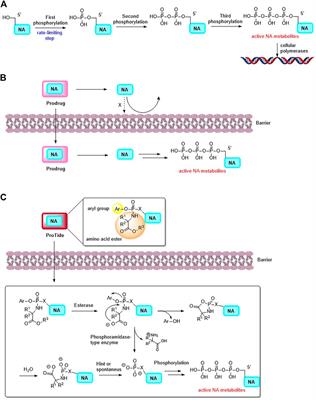MINI REVIEW
Published on 18 Apr 2023
Advanced prodrug strategies in nucleoside analogues targeting the treatment of gastrointestinal malignancies

doi 10.3389/fcell.2023.1173432
- 3,637 views
- 4 citations
830
Total downloads
4,558
Total views and downloads
You will be redirected to our submission process.
